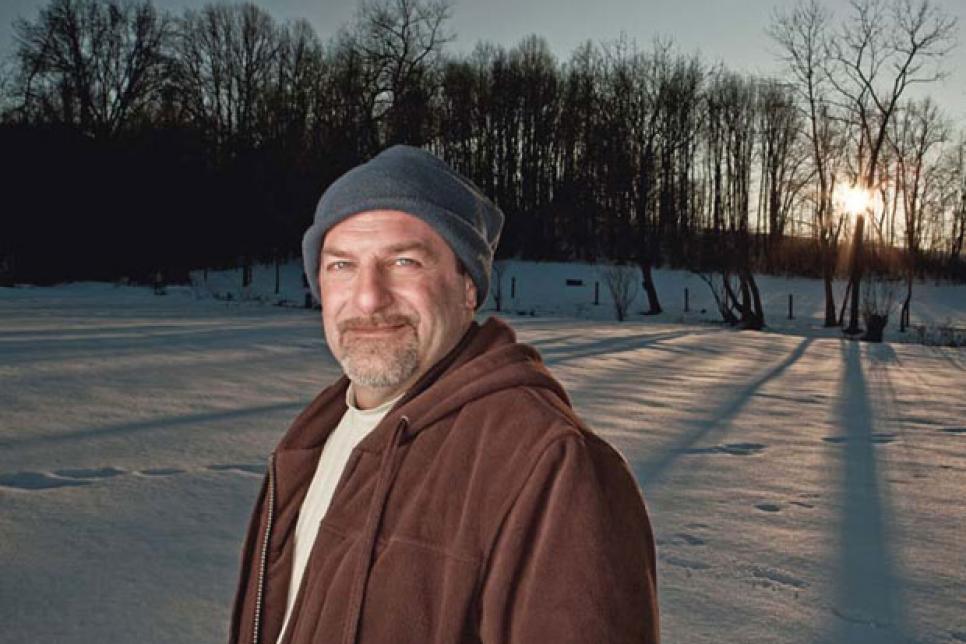How Golf Taught Me To Deal With Cancer

"My freedom from self-pity," says Sapira, "...is owed to a principle learned through years of bad shots."
Last summer I found out I have cancer. It has spread from my colon to my liver, and if other complications don't get me first, it will spread to my lungs and brain. It's beyond cure. I'm 47, married, and like most people, I guess, never saw this coming. The docs give me perhaps a few years with chemo. Without it, a few months. By the accounts of colleagues, friends, a few old boys at the club who've seen people go through similar things, I have borne this news with amazingly good spirits. And although I can't be objective about it, I agree my mood has been upbeat despite it all. So much so that I've said a few times I don't want to think about why I'm so upbeat, for fear of realizing I shouldn't be.
But with my small law practice now closed, and the chemo often keeping me chained to the house because of fatigue, I haven't completely avoided self-reflection. Why am I not depressed? What I've come up with is golf. My freedom from self-pity, rage and a host of other unhappy reactions to this devastating development is owed to a principle learned through years of bad shots, bad bounces and bad lies. Namely, wasting your energy fuming against what is already done is counterproductive. Focusing only on the things you can control, like the next shot, is always the best approach.
I came to golf somewhat late in life. I was 27, fresh out of law school, and I'd just moved from Pittsburgh to the sticks of Berks County to start my first job. I was quickly introduced to the rural gentleman's hobby of choice. When I began to play on a regular basis, like many novices, I would react badly to poor shots and unfortunate rubs of the green.
It took a few seasons, but eventually I became adept at shaking off anything negative. My method was simple: I'd force myself to laugh each time something bad happened. I put a lot of effort into becoming a better golfer, which is different from just trying to hit the ball better. I focused on keeping a cooler head and making sound decisions. Eventually I got down to a 5-handicap and was competing in county tournaments.
So now I'm dealing with my cancer in the same way. It's a really crappy lie (OK, it's deep in the trees on a root with no look at the green and a restricted backswing), but I know the more attention I pay to hitting the next shot, the better the rest of my round, my life, will be. I still laugh a lot every day.
I'm sure a lot of people learn this lesson in different ways, but I also know a lot never do. For me, without golf I might never have. I've slipped to a 9.6 Index but still get out and play when I can. Some of the side effects from the chemo are strange. One drug I took made me extremely sensitive to cold temperatures -- what the docs call cold neuropathy. For a while I had to put a cloth over my mouth when I went outdoors; otherwise it felt like I was breathing razor blades. Once in the fall I had a good round going when the sun suddenly went behind a cloud. I accidentally touched the steel shaft instead of the grip on an iron and had to drop the club because it stung.
I've already had one surgery and will be on chemo the rest of my life, however long that is. I've had to confront the knowledge that my wife of 20 years and I will not grow old together. (On the bright side, I likely won't have to worry about the new groove rule.) But thanks to the lesson I learned from golf, I'm looking forward to hitting my next shot, and every shot I have left, as well as I can. And who knows, maybe I'll even pull off that impossible shot.
*Did golf save your life? E-mail us at golfsavedmylife@golfdigest.com.